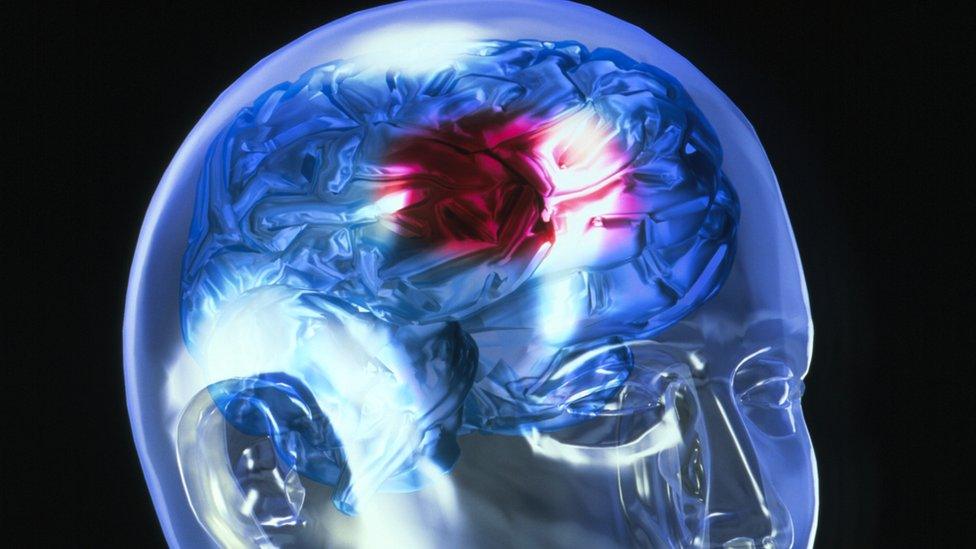Radio DJ Mark Goodier praises wife's action after surviving a stroke
- Published
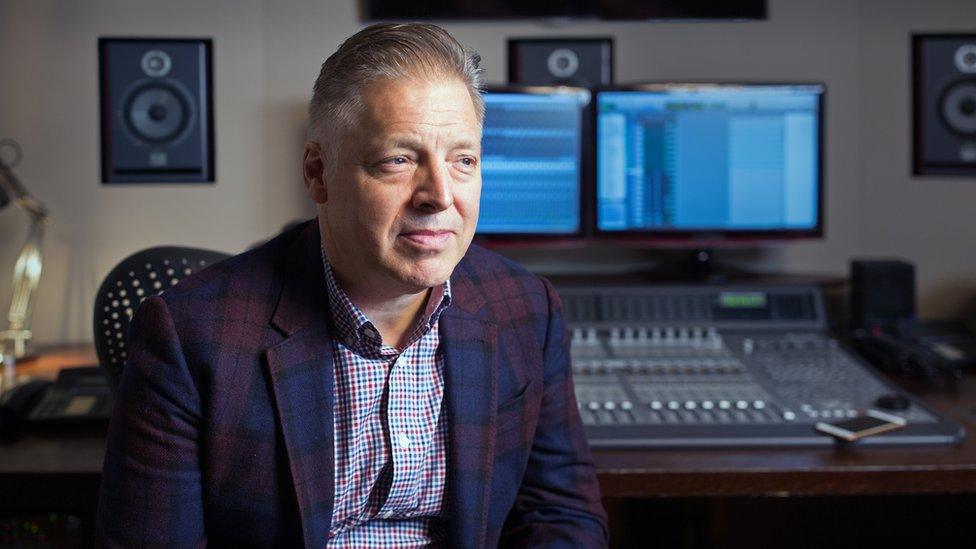
Radio DJ Mark Goodier was fortunate that his wife acted quickly when he had a stroke
One in four people does not call 999 at the first sign of a stroke, according to Public Health England.
For the best chance of recovery, the advice is not to hesitate if you see someone's face falling on one side, slurred speech or weakness in the arms.
Radio broadcaster Mark Goodier, 55, survived a stroke in November thanks to the quick actions of his wife.
He was lucky - two out of three stroke survivors leave hospital with a disability.
Mark Goodier said his wife realised she had to act fast, external after he had suffered a "crippling headache" one morning and collapsed on to the bed.
"I had a loss of feeling on one side of my face," he said. "She didn't wait to worry about it or wonder.
"I consider myself fortunate because she did the right thing, at the right time."
She called an ambulance straight away, and he was treated quickly in hospital.
Mark, a former Radio 1 chart show DJ and Top of the Pops presenter, is now slowly getting back to work and returning to a normal pace of life.
He said: "I'm still coming to terms with what's happened, but I'm a very positive person and I'm gradually building up the exercise again.
"It's going to take time, but my story could have been very different if she hadn't made the call when she did."
Fast action
A stroke occurs when the blood supply to the brain is cut off, as a result of a clot or bleeding on the brain.
It can happen at any age, although most people who have a stroke are older.
More than 100,000 strokes happen in the UK every year, leading to about 40,000 deaths. Many more lead to severe disability.
More than a million people in the UK are living with the after-effects of stroke.
Public Health England has launched a campaign, called Act Fast, external, to urge people to call 999 as soon as they see any one of the three signs of a stroke.
face - has it fallen on one side?
arms - can they be raised?
speech - is it slurred?
time - call 999 quickly if you see any of these signs
Other signs can include:
sudden loss of vision
weakness on one side of the body
memory loss and confusion
dizziness and unsteadiness
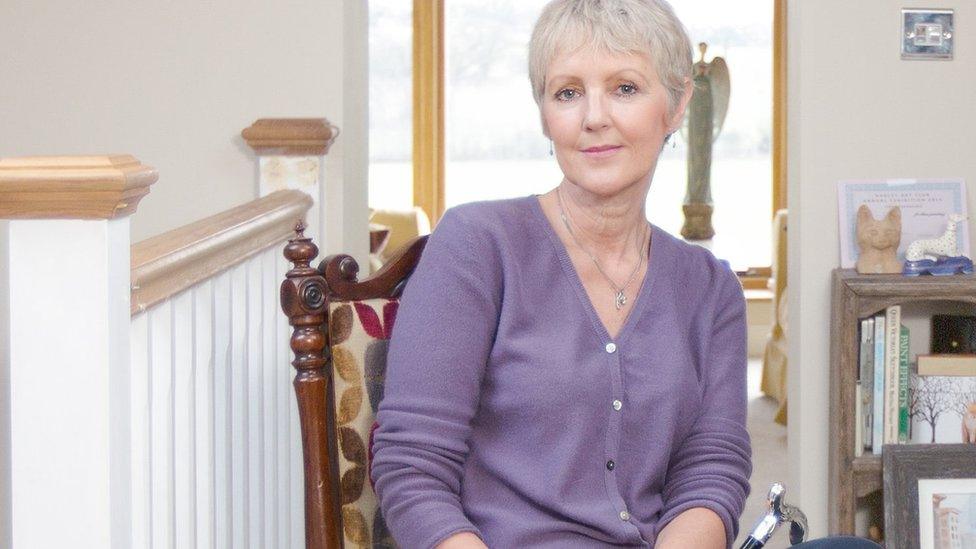
Sas Freeman has lost her independence after a stroke seven years ago
Sas Freeman, a former actress and model, from Worcestershire, had a stroke seven years ago, aged 45.
At the time, she was very fit and healthy, holding down a busy job. She thought strokes could not happen to people like her.
So when her face started drooping and she couldn't get her words out, she didn't seek help.
"I thought I could get rid of the tremendous pain in my head," she said.
"I couldn't possibly call an ambulance, so I called my GP and tried to get an appointment instead.
"Stupidly, I was doing it all the wrong way."
'I'm a stranger to me'
Sas was eventually admitted to hospital, but the delay meant she lost her speech and her mobility.
A second stroke a few weeks later left her needing 18 months to recover.
She has gone from being active and independent to needing help with simple tasks such as cooking and walking.
She can no longer work or drive, and she struggles with extreme tiredness during the day.
When she looks at photos of herself taken before the first stroke, they feel like images of a stranger.
"It's like looking at a twin," she says. "They aren't me anymore, it's very strange.
"Stroke has taken away an awful lot. It was a huge, huge shock. I want people to learn from my stupidity."

How to reduce my risk of stroke?
Not all strokes can be prevented. As we age, our arteries become harder and narrower and more likely to become blocked.
But many strokes can be prevented by:
taking medication prescribed for any medical conditions
stopping smoking
drinking less alcohol
eating a healthy diet and aiming for a healthy weight
doing regular exercise
Prof Kevin Fenton, national director for health and wellbeing at Public Health England, said: "Stroke is one of the leading causes of death in the country, and the faster someone experiencing a stroke gets emergency treatment, the more chance that person has of surviving and avoiding serious disability."
Juliet Bouverie, chief executive of the Stroke Association, said people were not taking the right action at the right time.
"A stroke is a brain attack and acting fast makes a huge difference," she said.
"You are more likely to survive a stroke and make a better recovery if you call 999 on spotting any one of the symptoms.
"The quicker you act, the more of the person you save."
- Published18 November 2016
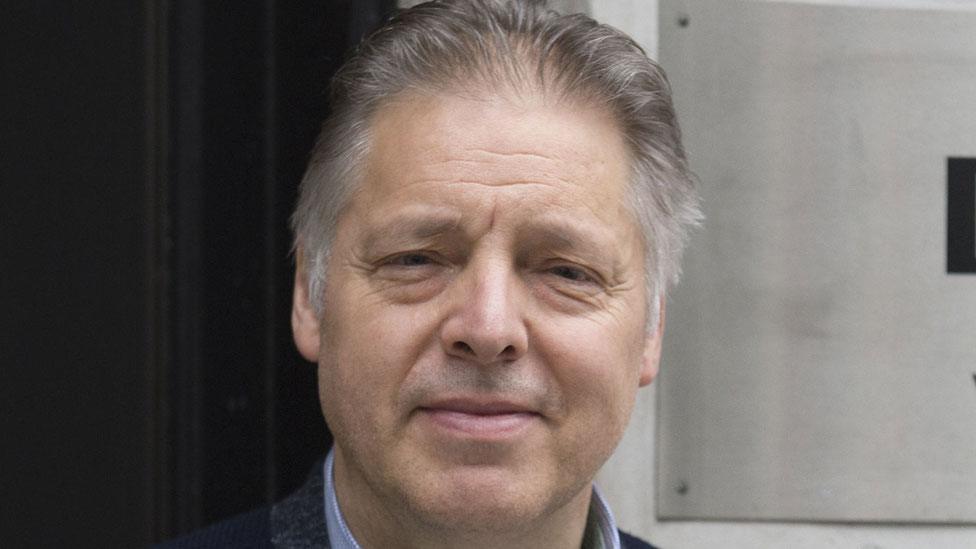
- Published16 December 2016
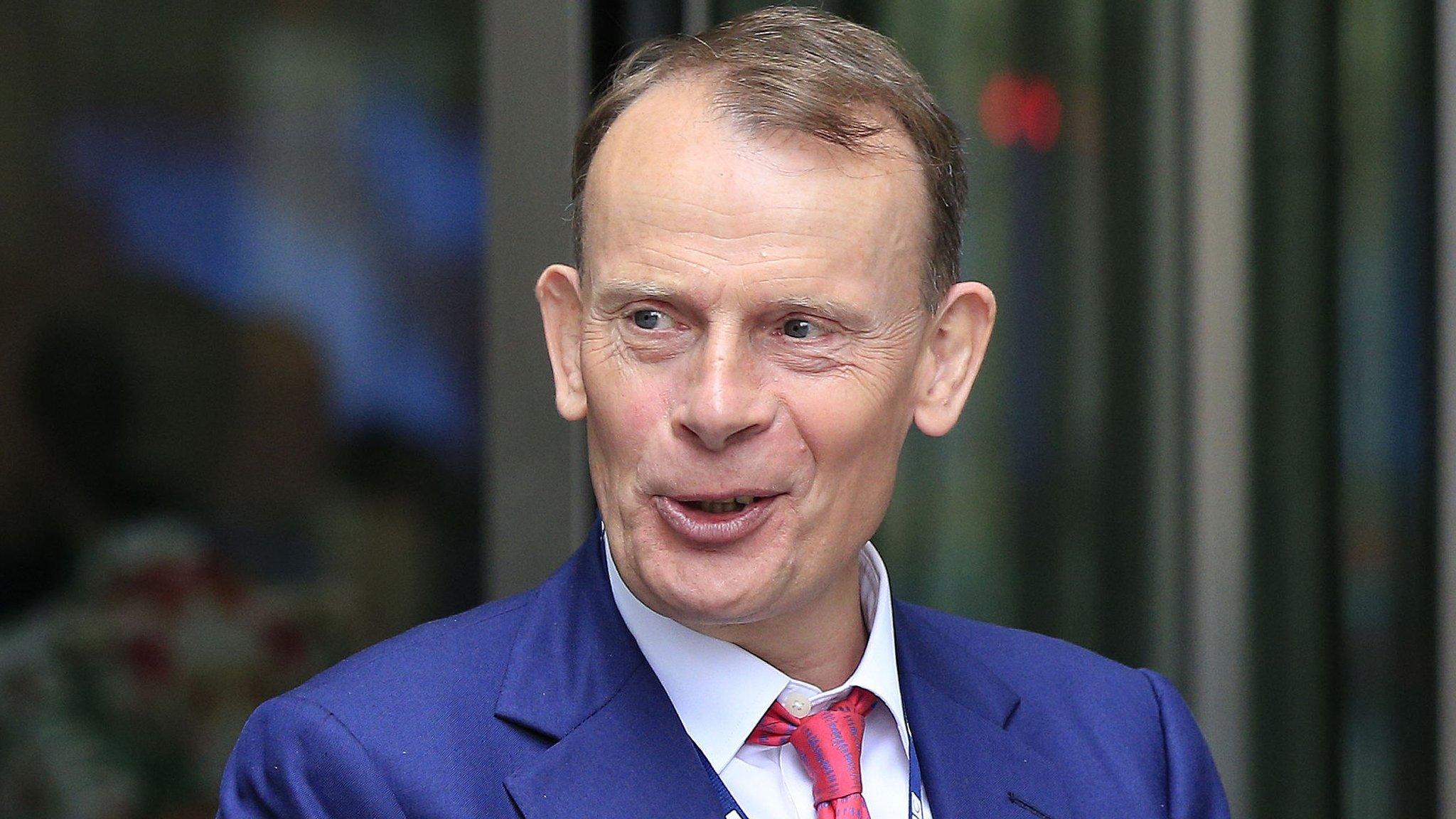
- Published2 February 2015
